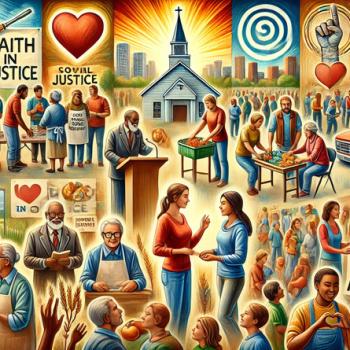Three, political speech and theological speech are not one in the same. Yes, theology has collective and corporate implications and, therefore, political implications. But the church is called upon to think about those issues from a fundamentally different point of view. Methodists are fond of talking about the resources of Christian theology as lying in Scripture, tradition, reason, and experience. That list is inadvertently read as a list of two resources unique to the church (Scripture and tradition), alongside two resources shared in common with everyone else (what goes on inside our heads and what goes on in our lives). But when Christians talk about reason, we are talking about reasoning with the church, and when we talk about experience, we are talking about the experience of the church. When we use political language as if it were theological language, or when we use theology as if were a surrogate for politics, we fail to live and think as Christians were meant to live and think.
Four, because the church and the state think differently, they are also obliged to behave differently. This means that our nation is not obliged to adhere to the standards that shape the church. The church has no business arguing that the state conform to the standards that shape the church. And the church need not conform to the standards that govern the nation.
Fifth, for that reason the church—not the nation—is the locus of Christian reflection and faith.
And when you are dependent upon the Lord of heaven and earth, it really is all downhill from there.





